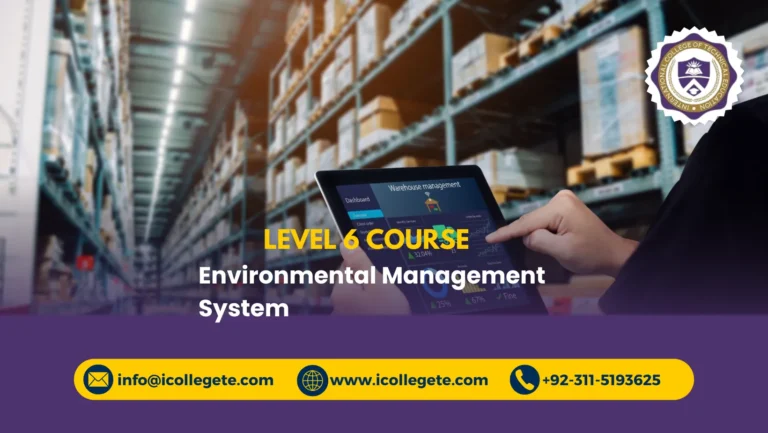The ICTQual AB Level 6 International Diploma in Quantity Surveying is a globally recognized qualification designed for individuals seeking to build a successful career in cost management, construction estimation, and contract administration within the civil and construction industries. ICTQual AB Level 6 International Diploma in Quantity Surveying focuses on developing professional expertise in quantity surveying principles, construction economics, cost planning, and financial control of construction projects. ICTQual AB Level 6 International Diploma in Quantity Surveying provides learners with a deep understanding of how to manage budgets, estimate project costs accurately, and ensure value for money throughout the lifecycle of a construction project.
The ICTQual AB Level 6 International Diploma in Quantity Surveying blends theoretical concepts with real-world applications, ensuring that learners acquire both analytical and practical skills necessary for modern construction environments. Through ICTQual AB Level 6 International Diploma in Quantity Surveying, students gain insights into construction law, procurement methods, project management, and sustainable cost control strategies. ICTQual AB Level 6 International Diploma in Quantity Surveying also emphasizes the use of digital technologies such as Building Information Modelling (BIM) and computer-aided estimating tools that are transforming the quantity surveying profession globally.
The ICTQual AB Level 6 International Diploma in Quantity Surveying prepares learners to handle complex construction challenges, including tendering, budgeting, financial risk management, and post-contract administration. Participants are trained to evaluate project feasibility, manage contractual obligations, and collaborate effectively with architects, engineers, and contractors to deliver cost-effective and quality-driven results.
ICTQual AB Level 6 International Diploma in Quantity Surveying is ideal for professionals who aim to enhance their technical, financial, and managerial capabilities in the construction industry. ICTQual AB Level 6 International Diploma in Quantity Surveying is a powerful stepping stone for individuals pursuing roles as quantity surveyors, cost estimators, contract managers, and commercial project leaders across both public and private sector projects.
Course Overview
The ICTQual AB Level 6 International Diploma in Quantity Surveying provides a structured learning pathway that covers cost estimation, contract management, tendering procedures, and construction project economics. The ICTQual AB Level 6 International Diploma in Quantity Surveying equips learners with the knowledge and skills needed to manage project costs efficiently, minimize financial risks, and ensure optimal use of resources.
Course Study Units
This qualification, the ICTQual AB Level 6 International Diploma in Quantity Surveying, consists of 36 mandatory units.
Year 1 – Foundation in Quantity Surveying
- Principles of Quantity Surveying
- Introduction to Construction Projects
- Construction Materials and Methods
- Project Planning and Scheduling
- Risk Assessment and Management
- Health, Safety, and Environmental Awareness
- Project Communication and Stakeholder Management
- Construction Technology Fundamentals
- Financial Management in Construction
- Quality Assurance and Control
- Legal and Regulatory Frameworks in Construction
- Professional Ethics and Conduct
Year 2 – Intermediate Quantity Surveying Practices
- Advanced Project Planning Techniques
- Resource Management and Allocation
- Project Cost Estimation and Budgeting
- Construction Contract Administration
- Procurement and Supply Chain Management
- Project Risk Analysis and Mitigation
- Leadership and Team Management
- Site and Workshop Management
- Sustainability and Environmental Management
- Project Monitoring and Reporting
- Problem-Solving and Decision-Making in Projects
- Communication and Negotiation Skills
Year 3 – Advanced Quantity Surveying and Strategic Leadership
- Strategic Quantity Surveying and Project Management
- Advanced Construction Cost Planning
- Infrastructure Project Management
- Innovation in Construction Projects
- Advanced Risk and Crisis Management
- Contract Management and Legal Compliance
- Leadership in Construction Projects
- Advanced Project Control and Performance Measurement
- Project Governance and Compliance
- Research Methods and Project Analysis
- Capstone Project in Quantity Surveying
- Professional Development and Career Planning
Course Learning Outcomes
- Understand the key principles and practices of quantity surveying
- Prepare accurate cost estimates and manage project budgets effectively
- Conduct feasibility studies and cost-benefit analyses for construction projects
- Apply contract administration procedures and procurement strategies
- Analyze and manage project risks and financial uncertainties
- Utilize modern technologies such as BIM for cost and design integration
- Develop cost plans and ensure financial control during construction phases
- Ensure compliance with construction laws, standards, and ethical practices
- Apply value engineering methods to optimize project outcomes
- Collaborate effectively with multidisciplinary construction teams
- Demonstrate leadership and communication skills in project management
- Implement sustainable and environmentally responsible cost management approaches
- Prepare detailed project documentation and professional reports
- Integrate theoretical knowledge with real-world construction scenarios
- Adapt to global trends and best practices in quantity surveying
Entry Requirements for this Course
- Level 5 Diploma or equivalent qualification in Civil Engineering or Construction
- Minimum age of 20 years
- Basic knowledge of construction or project management principles
- Proficiency in English (reading, writing, and communication)
- Relevant work experience in construction or cost estimation (preferred)
- Copy of valid identification or passport
- Updated resume or professional profile
- Academic transcripts or certificates
- Statement of purpose outlining career goals
- Basic computer literacy and internet access
- Ability to conduct independent research and case study analysis
- Commitment to complete assessments and coursework
- Analytical and numerical problem-solving skills
- Professional or academic references (if applicable)
- Interest in pursuing a career in cost and project management
Course Benefits
- Earn an internationally recognized qualification in quantity surveying
- Gain specialized skills in cost estimation, project budgeting, and financial control
- Enhance professional competence in contract and project management
- Learn advanced methods for value engineering and cost optimization
- Build expertise in construction law and procurement practices
- Improve risk management and strategic decision-making abilities
- Increase employability across global construction and infrastructure sectors
- Gain practical exposure through industry-relevant projects and case studies
- Learn to use modern tools such as BIM and cost management software
- Strengthen communication and leadership capabilities
- Prepare for higher-level qualifications or professional memberships
- Enhance ability to deliver sustainable and cost-efficient construction projects
- Improve project documentation and financial reporting skills
- Expand career opportunities in both private and public sectors
- Build confidence to manage large-scale construction budgets and contracts
Why Someone Should Choose this Course
- Globally recognized qualification designed for modern construction professionals
- Provides a perfect balance between theory, practice, and technology
- Focuses on real-world applications and project-based learning
- Curriculum aligned with international industry standards and best practices
- Ideal for engineers, project managers, and cost professionals
- Enhances career opportunities in the global construction market
- Prepares learners for leadership roles in cost and contract management
- Offers practical insights into sustainable and digital construction
- Helps develop expertise in construction finance and budgeting
- Promotes ethical, accurate, and efficient cost management practices
- Builds a solid foundation for advanced academic progression
- Offers flexible learning options for working professionals
- Strengthens professional credibility and international recognition
- Encourages innovation and analytical thinking in cost management
- Equips learners to manage complex multi-million-dollar projects effectively
Who Can Enroll in this Course
The ICTQual AB Level 6 International Diploma in Quantity Surveying is ideal for civil engineers, site supervisors, project coordinators, construction managers, and cost estimators who want to specialize in quantity surveying and project cost control. ICTQual AB Level 6 International Diploma in Quantity Surveying is also suitable for professionals already working in the construction sector who wish to advance into commercial management or contract administration roles.
Additionally, graduates in engineering, architecture, or construction-related disciplines looking to enter the cost management field will find ICTQual AB Level 6 International Diploma in Quantity Surveying a valuable addition to their qualifications and career progression.
Future Progression for this Course
- Progress to ICTQual AB Level 7 International Diploma in Quantity Surveying or Project Management
- Pursue a Master’s degree in Construction Management or Cost Engineering
- Apply for professional memberships with international surveying institutions
- Advance into senior roles such as Quantity Surveyor, Cost Consultant, or Commercial Manager
- Establish a consultancy specializing in cost estimation and project control
- Work in global construction, real estate, or infrastructure development companies
- Take on specialized roles in value engineering and cost analysis
- Transition into academic or research positions in construction economics
- Join public sector roles in infrastructure planning and budget management
- Participate in international megaprojects and sustainable construction programs
- Enhance professional standing through certifications like MRICS or PMP
- Lead multidisciplinary project teams in construction and infrastructure projects
- Contribute to policy-making in construction cost control and management
- Engage in lifelong learning and continuous professional development




